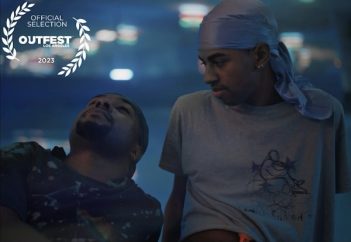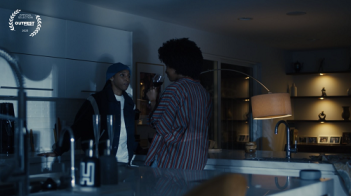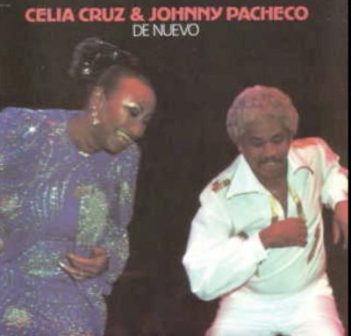Concord Originals, the narrative content creation division of the world’s leading independent music company and licensor of stage productions, Concord, partnered with Outfest to launch a one-of-a-kind short film financing and intellectual property licensing initiative to support up-and-coming LGBTQIA+ filmmakers of color. In addition to providing financing for three short films, Concord Originals facilitated each film team’s use of one of three iconic songs from its vast well of IP into their films.
After being selected at Outfest Fusion, the selected films directed by Jonathan De La Torre and Miles Lopez (Avivar), Zoë Hodge (Skate), and Chanelle Tyson (Artificial), premiered at Outfest Los Angeles 2023. The Concords Shorts are a special set that screened at Outfest Los Angeles on Saturday, July 15, 4:45 PM, at the Directors Guild of America Theatre 2 and was followed by a Q&A with the filmmakers.

In each of the films, the filmmakers were given several song choices from the Concord Catalog with the requirement that they each build their short film around the selected song. Jonathan De La Torre and Miles Lopez, in making Avivar chose “Tres Días De Carnival” (1950) featuring Cuban-American singer Celia Cruz with Johnny Pacheco. Zoë Hodge with her film Skate followed a tantalizing lead from the original music video of Sylvester’s “You Make Me Feel Mighty Real” (1978) which featured the sexual fluid disco star performing in a roller rink. Chanelle Tyson in her short film Artificial found a way to embed the memorable theme song of “You’ll Never Walk Alone” from the Broadway musical Carousel (1945) by Rodgers & Hammerstein. This is an interesting way of shifting the idea of film-making away from the standard music video model which usually features a singer or group performing live with a host of images, possibly symbolic and often random to provide a bunch of visual corollaries to the theme of the song. Here the balance is shifted to story-telling and using an iconic song to reflect the feelings of characters in a story.

In Zoë Hodge’s Skate (13 min.), a young Black man who is gay finds sanctuary at the local roller disco. This young gay man named Theo is played with great sensitivity by Dwany Guzman, who I believe is also the dancer in the dream sequence. He is awkward at first on skates and accidentally befriends a fairly experienced skater (Matthew Harvey) who helps him up when he falls. A spark of attraction begins as the other young man invites him to see him perform with his local dance group at his church. He rushes home to check up on his invalid father (Jérome Rucker) who has let him back in the house after some undisclosed incident in the recent past. Theo is supposed to be available by cell phone whenever his sickly father needs him. His father’s home does not seem like a happy place for him, so he finds the disco skating rink his escape. All this builds to an interesting scene with the young men disco skating to the tune of Sylvester’s “You Make Me Feel Mighty Real,” an obvious gay theme, if there ever was one. The beauty of the dream sequence with the dance is pure poetry, aided by Adam Chappman’s fine cinematography. By the end of the film, Theo attempts to renew his relationship with his father all while finding solace in his new friendships.

In Chanelle Tyson’s Artificial (12 min.), we encounter two young Black women played by Jasmine Ashanti and Gianna Collier who meet at Jasmine’s house. They talk briefly and their conversation leads to music. We are all familiar with what Siri represents on our cell phones and many of us have managed to bring that electronic chatterbox Alexa into our homes as well. The two young women are talking about a particular subject and Alexa is anxious to please by finding a requested song to play. The film is a snapshot of a romantic encounter between the two women, but it is soon overshadowed by the two electronic devices talking to each other. This clever plot has Siri and Alexa moving into unfamiliar territory as they are not prepared to explain anything about human emotions beyond textbook definitions. As the two young women leave the kitchen to go upstairs, Siri asks Alexa about love and Alexa finds in her digital memory the song “You’ll Never Walk Alone” from Rodgers & Hammerstein’s Carousel, belted out by a real mezzo-soprano. This is one of the wittiest takes on our digital age.
It’s the aftermath of a dinner between two women – Chris and Jasmine – who are teetering the line of friendship and something more. Chris, who has cooked dinner, banters with Jasmine. Alexa in the kitchen watches their dynamic, especially taking note when Jasmine pulls out her phone to ask Siri a question. Chris eventually pulls a nervous Jasmine into a sweet, intimate dance, where they kiss for the first time and then head to the bedroom, leaving Alexa and Siri behind. Curious about what she just witnessed, Alexa asks Siri about touch. Siri doesn’t understand at first, simply providing a dictionary definition but soon their conversation evolves as they use their infinite database of knowledge (including famous quotes and lines of poetry) to explore tenets of the human condition, such as feeling, loneliness and love. It climaxes into a fantastical light show blooming in the house around them, set to “you’ll never walk alone” from carousel – the ais way of fully discovering love together.

The film Avivar (15 min.) by Jonathan De La Torre and Miles Lopez tackles a much larger thematic tapestry about Mexican-American cultural norms and toxic machismo in Latino culture. This is a fairly complex film both stylistically and thematically with a large cast. At the center of the story is an old man dying in bed at home, attended by his family and a hospice care nurse Mary (Chelsea Gilson). Roberto Léon (played unrecognizably by Jonathan De La Torre) is at his home where his bewildered and very traditional Mexican-American wife Gloria (Blanca Araceli) is trying to get her two sons to be there for their father, knowing that the old man will pass away very soon. The oldest son Antonio (Daniel Ramos III) considers himself the heir to the family estate and has handled his father’s finances for a number of years. The sister Rebecca (Allee Moreno) is quite independent and determined to go back to school to improve her job prospects and finds little support from her mother or Antonio’s wife. The younger son Rene Léon (Aaron Valenzuela) who we soon realize is gay has had very little to do with the family because he has been ostracized for years. When he arrives at his father’s house, the family frictions ignite because he has brought his “roommate” Jackson (Jamil King) who is obviously his romantic partner. This younger brother feels alienated from the family and objects to how his older brother’s innate homophobic leads to attacking him.
 Imbedded in this very short film are many dynamics including the place of the women in the lives of Latino men whose machismo shapes the way they perceive role models within the nuclear family. The older brother Antonio is upset to see his son Ignacio (Tiago Martinez) playing with the dolls of his daughters out in the front yard and yells at him. This action, in turn, once announced permeates the rest of the film, as we come to understand the old man who is dying is very much a product of this machismo attitude. When the family members are arguing in the living room, the angelic figure of the home hospice nurse turns on the radio and we hear a song that once meant something special to the dying old man – namely, the happy dance song “Tres Dias de Carnival,” by Celia Cruz and Johnny Pacheco. That song serves as the linkage to the large theme of this short but very densely orchestrated film. Does that song trigger a memory of what might have been a different life on the part of the old man?
Imbedded in this very short film are many dynamics including the place of the women in the lives of Latino men whose machismo shapes the way they perceive role models within the nuclear family. The older brother Antonio is upset to see his son Ignacio (Tiago Martinez) playing with the dolls of his daughters out in the front yard and yells at him. This action, in turn, once announced permeates the rest of the film, as we come to understand the old man who is dying is very much a product of this machismo attitude. When the family members are arguing in the living room, the angelic figure of the home hospice nurse turns on the radio and we hear a song that once meant something special to the dying old man – namely, the happy dance song “Tres Dias de Carnival,” by Celia Cruz and Johnny Pacheco. That song serves as the linkage to the large theme of this short but very densely orchestrated film. Does that song trigger a memory of what might have been a different life on the part of the old man?
There is a second story built into Avivar, further back in time when the old man was probably the hard-working breadwinner from Mexico (in a role played by Jonathan De La Torre) for his young family. He comes home tired from work and sees his two sons (Ricardo Julian Castro & Liam Martinez) in the kitchen helping their mother Olga (Gloria Banus) cook. They are listening to the old-fashioned radio of 1950s vintage that is playing the same “Tres Dias de Carnival” and he angrily shuts off the music and yells at his boys and his wife. In his anger, he storms out of the house muttering about how the kitchen is for the women and the boys have no business learning women’s stuff. The toxic machismo on complete display in this scene is shot in 1:33 aspect ratio and muted colors (by cinematographer Angelo Clarizio) to suggest the faded recollection of the old man of this very incident from years past. The song on the radio triggers the memories of his younger days. Does the old man on his deathbed come to some realization about himself and the impact of his own machismo on those he loves? The film provides a possibility in its final scene – truly a tour de force.
The partnership of Concord with Outfest Los Angeles comes as part of Concord’s Impact Investment Initiative – a $10M fund to deploy capital into projects and companies that serve or are led by members of underrepresented and marginalized communities, in contrast to Concord’s general philanthropic efforts, the intent of the impact investing fund is to provide support and investment to projects that have commercial potential if led by folks from communities that historically have not had access to those resources. If you were not able to be there to see the shorts in person, consider watching them with Outfest Streaming beginning July 17 through July 23. Go to: www.outfest.org.